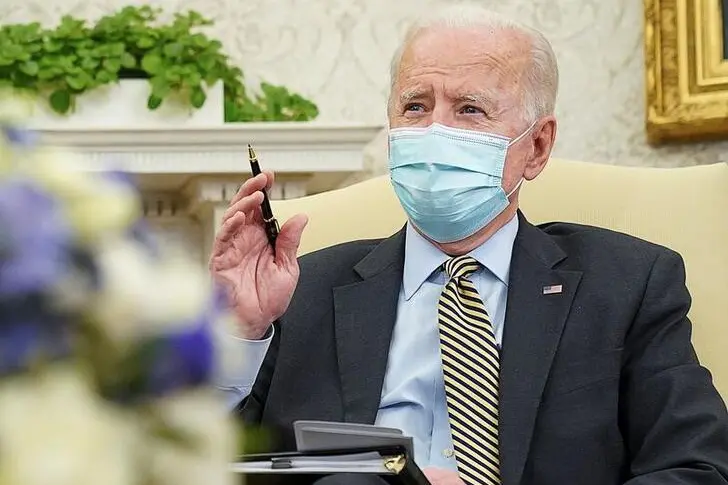PHOTO
For all the vital significance of George Washington and Franklin Roosevelt, if pressed I would have to say that Abraham Lincoln was the best and most important president the US has ever produced.
Even before he performed the miracle of spearheading America through the cauldron of its Civil War, Lincoln was aware that rebuilding the frayed bonds of unity between the North and the South would be the defining mission of his life.
On June 16, 1858, at the Illinois State Capitol in Springfield, Lincoln accepted the Republican Party’s nomination for the Senate. Though he was to lose that race to the far better-known Stephen Douglas, the notoriety the campaign engendered would propel the obscure Illinois lawyer to the presidency only two years later.
But on that balmy summer evening in 1858, Lincoln eloquently described the maelstrom America was heading into, and his ultimate confidence that unity would win the day. Famously, he stated: “I do not expect the Union to be dissolved — I do not expect the house to fall — but I do expect it will cease to be divided.”
More than 160 years later America is, in many ways, a very different place. Yet the shared imperative of binding a divided nation’s wounds, of sowing the healing seeds of unity, is also the primary historical mission for the recently elected Joe Biden. In recognition of their commonalities, in his passionate inaugural address Biden specifically quoted Lincoln, declaiming to the country, in his presidential predecessor’s own words: “My whole soul is in this.”
But the strange temptation of victory now threatens Biden’s overriding mission. Riding a surprising wave of initial domestic policy success — both in terms of the impressive US vaccination program, as well as the congressional passage of his monumental $1.9 trillion pandemic relief bill — the Biden White House is riding high. And that is precisely the danger.
Democratic partisans, encouraged after years of progressive futility, are telling him to throw caution to the wind in pressing for his mammoth $3 trillion-$4 trillion infrastructure bills, to ignore opposition Republican entreaties and to ram the legislation through both houses of Congress, despite the slimmest of majorities.
It is quite possible that this can be done, that the Democrats can significantly increase the role of the government in American life, in terms of green energy, child care, healthcare and education. It is quite possible — but it is entirely antithetical to the historical point of Biden’s mission to bind the country’s wounds.
The $1.9 trillion pandemic relief plan passed the Senate without a single Republican vote. But that hardly mattered, as after four dreary years of the crudest partisan attacks, representatives of both parties serenely sat down with one another in the White House to ascertain whether they could come to a common position over COVID-19 legislation. While they failed to do so, the mere act of trying sent the proper bipartisan message, even if the parties ultimately failed to reach a consensus.
As a result, Biden’s efforts were crowned with legislative triumph, even as he was seen by much of the country as doing his best in courting bipartisan outcomes.
The initial infrastructure bill that is being proposed is different. Reuters reports that, once again, a number of senior Republican senators have signaled they would support a bill of up to $1 trillion that focuses on building and repairing roads and bridges and installing internet broadband throughout the rural parts of the country.
Amazingly, given their dogmatic anti-tax ideology, some Republicans are even willing to countenance tax increases to partially offset the gigantic cost of the bill, through an increase in the gasoline tax and a new fee for electric vehicles.
However, the Biden White House’s definition of “infrastructure” amounts to a far more elastic term. The plan calls for fully $2 trillion in spending, going beyond traditional projects to also include a wish list of Democratic policy goals that somehow also address climate change and elder care.
As Republican Senate Minority Leader Mitch McConnell ruefully put it: “There’s broad bipartisan support for tackling the infrastructure issue. But it depends on what your definition is. Infrastructure is roads, is bridges. It’s broadband. But beyond that, they’ve thrown everything but the kitchen sink into it (the proposed bill).”
Politicians almost never restrain themselves, especially when they are on a winning streak. But statesmen do. Biden is about to show us, over the next month, which of these creatures he is.
The odds are better than half that, despite the 50-50 Senate and only a minuscule 219-211 Democratic majority in the House, Biden will be able to run the political table and get his $2 trillion grab bag of a bill through Congress. However, given that his true historical mission mirrors Lincoln’s — binding the nation’s wounds — he should, counterintuitively, refrain from doing so.
Fully half of the country, in legislative terms, voted for members adamantly opposed to this shopping spree. To ignore them is not to make the country whole. Instead, it is to further the specific, parochial Democratic agenda.
Biden has reached his historical fork in the road; he can become a Democratic icon or a president of true historical significance who bound his wounded country together. He cannot be both.
- Dr. John C. Hulsman is the president and managing partner of John C. Hulsman Enterprises, a prominent global political risk consulting firm. He is also senior columnist for City AM, the newspaper of the City of London. He can be contacted via chartwellspeakers.com.
Copyright: Arab News © 2021 All rights reserved. Provided by SyndiGate Media Inc. (Syndigate.info).





















